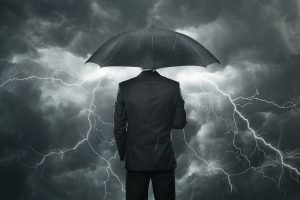Be prepared: save for a rainy day
December 28, 2017
 One thing we do not spend enough time thinking about is putting money aside for emergencies.
One thing we do not spend enough time thinking about is putting money aside for emergencies.
Most of us think we are immune to bad luck. That is part of human nature. Human nature or not, it is not very practical. Emergency funds, as part of your financial strategy, gives you a buffer when bad stuff happens. Being prepared for unexpected events means you won’t have to panic.
Think of situations in your own life when you might suddenly need extra cash. Perhaps the loss of a job, an illness, or unforeseen home repairs. The list can be long.
There will be times in everyone’s life when the unexpected happens. Why then are there so many people unprepared?
A 2016 poll by Manulife Bank found that 47 per cent of those surveyed either didn’t know how much was in their emergency fund or had little or no money saved for a rainy day.
How much to put aside will vary depending on your circumstances, but the consensus is three to six months’ salary.
The Financial Consumer Agency of Canada (FCAC) acknowledges it can take months or years to reach your emergency fund goal, and that is normal. They also caution against becoming discouraged over the amount needed and suggest to start small and build on it.
Planning is part of being prepared. Having an emergency fund is part of your overall risk management. Risk management is something that world leaders take seriously.
In November, the Financial Stability Board (FSB) added the Royal Bank of Canada to its list of 30 financial giants. The FSB is an international board located in Switzerland. Its Chair is Mark Governor of the Bank of England, a Canadian and previous head of the Bank of Canada. Being on this list requires the RBC to have extra financial reserves in case it gets into financial trouble.
Why is there an international board set up to monitor and make recommendations about the global financial system? Because the shock waves caused by any of the largest financial firms failing would be too damaging to global economic stability.
The world does not suffer if a smaller firm goes bankrupt. That happens and is a natural part of business. If you get into financial trouble it is a very big deal for you and your family. If you are ever suddenly in the need of extra cash, you will be happy you have an emergency fund set aside.
World leaders manage risk and prepare for the worst. Individuals should do the same.
